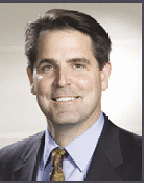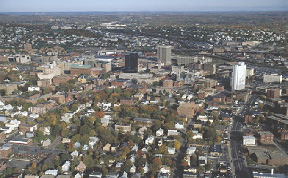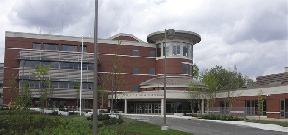Over the years, Worcester has shared in the national ebbs and flows of economic prosperity. As New England's second largest city, Worcester has redefined its identity and refashioned its urban form to accommodate the needs of a dynamic economy. Today, those changes continue to bear fruit as Worcester is the focus of an incredible amount of public and private investment - conservatively more than $1.6 billion. Downtown's Main St. is structured for success, boasting an architectural presence and urban scale rivaling great cities across the nation. From Lincoln Square to Federal Square and everywhere in between, new growth is changing the face of downtown.  The CitySquare project, whose District Improvement Financing Agreement was recently amended by the city and commonwealth to allow needed flexibility to move the project forward, is on the horizon with new offices, residences, retail, and entertainment. New construction over the last two years, including the Hilton Garden Inn, the Regional Justice Center, and The Hanover Theatre for the Performing Arts, reflects clear signs of the next era of Worcester's economic expansion. Worcester's daytime business activity is complemented by evening events at the DCU Center, Mechanics Hall, Palladium, Foothills Theatre, and The Hanover Theatre as well as many smaller venues for music and entertainment.
One element of Worcester's newfound growth is its expanding position as a center for biotechnology. For decades, Worcester has been a pioneer in the advancement of our understanding of the world. With over fifteen colleges and universities in Greater Worcester and major teaching and clinical hospitals, the city is well-placed to build both ideas and products designed to improve the human condition. In 1944, the Worcester Foundation for Experimental Biology was launched by Drs. Hudson Hoagland and Gregory Pincus as an independent research institute to advance the understanding of biology and medicine. Best known for the development of the birth control pill and groundbreaking work on in vitro fertilization, the organization continues today as the Worcester Foundation for Biomedical Research and is part of the University of Massachusetts Medical School. As a testament to Worcester's pioneering spirit, the Massachusetts Biotechnology Park (Biotech Park) was founded in 1985 and is lauded as one of the first biotechnology parks in the nation. Recognizing the importance of connecting academic research to the marketplace, Biotech Park built upon the inherent strength of area institutions to quickly become a major player in the Commonwealth of Massachusetts Biotech Cluster. Massachusetts Biomedical Initiatives (MBI) was also established in 1985 as a public-private partnership to advance commercial development within the biomedical arena. Over the years, MBI has invested over $50 million in private funding and $8 million in public funding in new technology-driven companies, developed two major incubators in Worcester, and has helped create over 50 companies employing over 2,000 workers, 1,400 of which are located in central Massachusetts. Worcester's prominence continues today and into the future with the work of such eminent scientists as Dr. Craig Mello, winner of the 2006 Nobel Prize in Physiology or Medicine, and start-ups like his RXi Pharmaceuticals Corporation, a biopharmaceutical research and development company.
As a city of innovation, Worcester has established itself as a leader in the emerging biotechnology and life sciences industry.  The newest opportunity for growth is Gateway Park - the joint venture of Worcester Polytechnic Institute (WPI) and the Worcester Business Development Corporation (WBDC). Gateway Park is an 11-acre, mixed-use development that includes a combination of life sciences and lab space,  housing opportunities, and commercial space. The WPI Life Sciences and Bio-Engineering Center is the first building to open in Gateway Park with programs dedicated to research-based, interdisciplinary sciences like stem cell biology, molecular nanotechnology, and advanced technologies in biological imaging and sensing. As a complement to the academic side of Gateway Park, BlueSky Biotech, one of the many successful companies emerging from MBI, was recently recognized by the Massachusetts Alliance for Economic Development as a Company to Watch in 2007.
Worcester is changing the way Massachusetts and the world does business. The only city in the commonwealth to utilize the full range of business development tools at our disposal - including District Improvement Financing, Tax Increment Financing, and Expedited Permitting - Worcester also happens to boast the first of the commonwealth's Growth Districts. Our three-month average permitting process was rated "easy" or "very easy" by more than 70% of respondents to an independent survey. The city's Office of Economic and Neighborhood Development will take you through the entire process.
Come see why Worcester is a Smart City and a Smart Choice. Visit our website at www.worcestermass.org or sign up for our enewsletter by sending your name and email address to development@ci.worcester.ma.us.
Michael O' Brien is city manager for the City of Worcester.
Tags:
Worcester is the focus of more than $1.6b in public and private investment
July 11, 2008 - Spotlights









_opt.jpg)
_opt.jpg)

